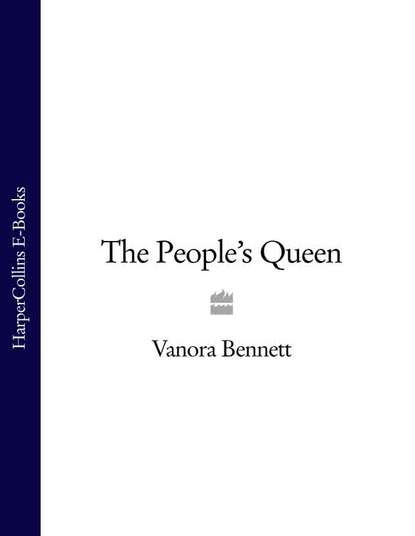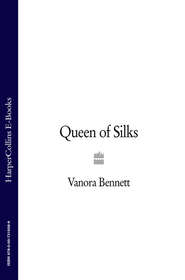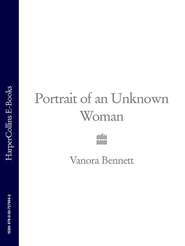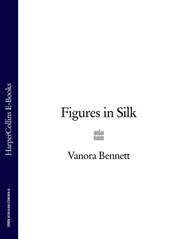По всем вопросам обращайтесь на: info@litportal.ru
(©) 2003-2024.
✖
The People’s Queen
Настройки чтения
Размер шрифта
Высота строк
Поля
And she’s staring at the younger woman with empty, frightening eyes.
The courtiers close quietly in as the two would-be queens, in their identical reds, come face to face. The expression on Joan of Kent’s face is that of a woman looking at her reflection in the mirror and hating it. Alice, who’s felt the dread start to wash through her at the sight of the Princess, like cold dirty riverwater, senses their suppressed excitement.
They want a fight, she thinks. They want to see me humiliated.
She clutches at the defiance this realisation brings with it. She needs the anger.
Brightly, she smiles, bows a deep bow, and says, in a loud enough voice for half the court to hear, ‘The Lady of the Sun welcomes you, madame. I am delighted you were able to honour us with your presence…’
Instead of edging back, as every instinct in her body is telling her to, she steps confidently forward, with a gracious hand outstretched towards the bulging silk of the Princess of England’s upper arm.
No one breathes. Now Joan will have to answer with a grated politesse of her own – at least, she would if she were minded to recognise Alice as a noblewoman like herself.
The silence continues for an unbearable moment.
Joan doesn’t bother with politesses, grated or otherwise. She rasps out one phrase. ‘You’re wearing my robe.’
There’s a little intake of breath. Alice is painfully aware of Edward’s eyes on her, from behind. Even he can’t help her now. She’ll have to deal with it herself.
If Joan’s going to insult her, there’s no telling how far she might go. Last year at Council, Joan’s husband had so lost his temper with the Archbishop of Canterbury, whom he suspected of preferring to obey the Pope than his King, that he’d yelled at the trembling prelate, in front of dozens of noblemen, ‘ANSWER, DONKEY!’
Alice squares her shoulders to stop them shaking. She’s not going to cut a pitiful figure like the poor Archbishop, whatever the Princess does. Not being frightened, that’s the key thing. She learned that years ago. Never show fear.
Bravely, she grins. Looking round to catch Edward’s eye, and draw him, from the dais, into this nightmarish conversation, she quips, brightly, perhaps too brightly: ‘Well, you know what they say. There’s never a new fashion but it’s old.’
Breaths are sucked in.
She waits, hardly daring to breathe herself.
At last, there’s a scared eddy of laughter. Alice senses the mood move, the support beginning to flow her way. She sees Edward shake his head in delight, and chuckle. You could always trust Alice to find a good line.
The danger’s past now, Alice tells herself, breathing easier. A laugh always eases things. Forcing herself forward again, she begins, with all the grace and charm she can muster: ‘My lady, allow me to…’
But before she can touch the Princess’s sleeve, so tightly packed with coldly furious flesh around taut muscle that the seams are straining, Joan pulls back her arm.
The older woman looks down, almost in surprise, at the jewelled goblet in her hand.
Then she jerks it forward.
At first, Alice feels the cold shock that comes next as just more of the dread and humiliation that swept through her a moment ago, when she first saw the Princess bearing down on her.
Then she realises there actually is dark liquid on her face and running down her front. Her eyes are stinging from it. She can’t see.
There’s wine all over her.
Alice blinks and breathes, and the claret drips down her hair. Her whole head is wet. She can’t move, even her eyes. She can’t look down and see how badly the robe is damaged. She’s trying to control the surges of humiliation – and rage – rushing through her, the hot and cold of them.
Perhaps the Princess knows she’s gone too far. She goes on standing opposite Alice with the goblet in her hand. There’s no expression on her face.
Alice goes on standing there too, blinking wine out of her face. After a while, she puts a hand to her sopping wet face and brushes a purplish strand of hair out of her eye. She knows there’s nothing she can do that won’t be too angry for court. She can only breathe, and blink, and wait for someone else to take the initiative.
Surely this is an insult to the King, as well as to her? Surely someone in this crowd of self-willed, self-regarding donkeys will defend his honour at least?
But it seems no one, even the King, knows what to do.
Until, after what seems an eternity, a completely unexpected voice pipes up, a nasal-ish, confiding, friendly little male voice, followed by Geoffrey Chaucer, stepping out from behind the Princess. ‘A thousand pardons. A thousand pardons! How could I have been so clumsy? I jogged your elbow, Madame d’Angleterre. There was nothing you could do, nothing at all.’
He’s wringing his hands, and bowing his head over them, and twinkling at the Princess, his slightly thin voice so apologetic, so charming, that the court can’t help but laugh. He has beautiful eyes, and when his face is animated, dancing with wit and intelligence, as it often is, he becomes handsome. Even Joan, who is perhaps almost as shocked by her transgression as Alice, softens as she looks at him, and almost smiles.
‘Utterly my fault; utterly. Amends, how to make them? A pilgrimage…to Jerusalem? No, what good would that be?…To Venice, for more silk, to replace your damaged robe, Madame Perrers, to the cloth fairs?’
Alice wipes her hand across her eyes again. She stares through her tangle of wine-dark hair. How has he done it? The little valet has them all laughing, and joining in his clothbuying fantasy, and forgetting the anger. It’s like a miracle. Of course there’s no way on earth or in Heaven that Geoffrey Chaucer could ever afford the cloth on the back of Alice Perrers, not on his ten-pound-a-year pension and free pitcher of wine a day, but then it’s obviously only a turn of phrase. There’s no need for him to worry particularly. Chaucer can say what he likes. He’ll never be called to carry out the pilgrimage he’s promising. This is pure face-saving improvisation – and a successful improvisation too. Even through the alcohol, Alice can see that the King is grateful to his man for drawing the sting out of the occasion.
Edward steps urbanely forward, bows to Chaucer, and draws his still glowering daughter-in-law up to the dais and out of trouble.
The crowd moves, relaxes and begins to talk (though no one rushes to meet Alice’s eye still). The fairy ring at the centre of the hall around her vanishes. The music starts again.
For a moment, Alice doesn’t know what to do. It is the Duke of Lancaster who steps up to her, very straight-backed, very long-nosed and serious, to offer her a very white kerchief, with which he dabs away the last of the wine, and then his hand, for the next dance. He’s helping her restore appearances, as is proper. Behind his correctness, she sees sympathy in his eyes, and hears it in his voice.
‘Joan can be…’ he begins, as he turns her into the dance. ‘Sometimes…’ But his voice dries up. He’s a nobleman, not the type to wink and shrug and laugh things off, she remembers. He’s here with her in homage to her gallantry; but all the same, he can’t quite bring himself to be verbally disloyal to his sister-in-law.
She nods, so choked with gratitude that, for once, she’s also unable to speak. She hasn’t expected it to happen like this, but she can sense new beginnings. When she passes Geoffrey Chaucer, she’s recovered her poise enough to be able to incline her head and smile. With sparkling eyes, he bows back. And he winks.
‘Why did you do that?’ Philippa Chaucer asks her husband curiously, materialising through the crowd and taking his arm. Geoffrey tries not to show surprise. His wife doesn’t usually stand with him in public. He once heard her say she was embarrassed to have to bend down so low to find his ear to whisper sweet nothings into. It was one of those comments, made sotto voce to her sister over the tapestry, which had, perhaps accidentally, come out just a little too loud.
With all the charm in his armoury, he turns to her, opening his shoulders in an easy-going shrug. ‘Oh…’ he begins non-committally. ‘You know…’ Then he pauses, struck by the fact that he doesn’t really know. It’s ended well, thank God, but it was obviously insane to risk turning the Princess of England’s rage on himself.
It’s not even as if he knows Alice Perrers, especially. She’s just one of those people who’s always been around, at court, pretty much from the time he first came, at nineteen or twenty; he remembers her as rather younger than him, and not from a grand family, one of the waifs the old Queen used to appoint, on a whim, to be snubbed for the rest of their lives by the real nobility. She’s always looked a bit mischievous, though, as if it was never going to get her down that much. He’s always liked that in her. There’s a spark in her pale blue eyes; something that lifts her looks – rounded little limbs, pale skin, curly black hair that often escapes from its headdress – into occasional beauty. Chaucer remembers a younger Alice sitting next to Jean Froissart in church, and whispering something quiet that made the Queen’s boyish chronicler (another of those whimsical royal appointments) curl up and snort and rock with laughter, and then looking utterly composed while poor little Froissart desperately tried to control his shaking curls and heaving sides. That sort of thing was probably what made the Queen take Alice on for a bit when the Duke of Lancaster got one of her established demoiselles pregnant. The Queen, God rest her lovely soul, always loved laughter. And being able to make people laugh probably helped Alice cling on afterwards, Chaucer thinks, even though it was obvious she’d never have the instincts of nobility. She’s tough. She survived until the King got a soft spot for her, even though the things Chaucer’s Philippa said about her, with her sister, both of them looking at each other with those half-closed eyes, like two cats, full of the utter disdain of the born aristocrat for outsiders, which must have been the same sorts of things that other people were saying, were always so unkind…
Well, Geoffrey Chaucer thinks ruefully to himself, recalling moments when Philippa has given him that cat look too, and, raising her long and beautiful nose, referred to his own family’s background in less than flattering terms. Perhaps that’s why. ‘I was just easing things along,’ he tells his wife quietly.
She half closes her eyes. She half smiles. ‘Feeling sorry for the whore,’ she says, and though there’s no obvious cruelty in her voice he feels belittled by the very gentleness of her contempt. She wafts away.
Geoffrey Chaucer goes on standing there, while the courtiers talk around him, louder and louder. He does know, after all, why he intervened. He felt sorry for Alice Perrers, standing all alone with wine dripping down her face and off her hair, and her shoulders shaking, with that bullying old brute glaring at her as if she wished her dead, and a crowd gathered round staring as if they were at the bear-pit, hoping for blood. You could have all the jaunty courage in the world, and still it would do you no good if no one stood up for you.
TWO (#ulink_ddfcff8a-fea1-5b53-b41b-4342dcb14927)
Loyalty, Alice thinks, from her chariot, with its burning hot metallic sides. She’s turning her head graciously from side to side. She’s ignoring the low mutters from the crowd, and the heat. It’s almost like the old days, this spring heat, when she was young, before the weather went so cold, with the skies always lowering, the winters piled with snow, the summers passing in fitful grey. Yes, loyalty’s what counts. You stand by the people you’ve got. You help those who help you.
Chaucer’s face keeps swimming into her head, mixed up with fleeting pictures of other people to whom she’s had debts of gratitude, whom she’s seen right. Her last glance back at the hall last night, when she saw Philippa Chaucer stalk up to her husband and start questioning him, and him politely waving her away – clearly refusing an invitation to gossip about Alice – has only confirmed the warmth she feels. She owes him. He won’t regret it.
The procession is passing out of Cripplegate to an especially deafening burst of horns, leaving the worst of the crowds behind. Alice has been focusing her mind on something pleasant she can do for someone, because she hasn’t enjoyed her ride through the City one bit as much as she’d expected. The crowd of burghers has been as hostile as any crowd might be on seeing one of its own elevated beyond what Londoners think is her rightful place. She’s seen the angry eyes, the men being muscled back from around the chariot by the sergeants-at-arms, the gob of wet landing on the side of the carriage, too close for comfort. She’s heard the low hissing, the mutters. Her golden sun-chariot is so low that she’s even made out some of the words. Not just the usual perfunctory unpleasantness due any rich nobleman’s mistress: ‘whore’ and ‘slack-legs’. Today it’s all been angrier and more heartfelt. ‘Grave-robber’, she’s heard; and ‘spendthrift’, and ‘Lady of the bleeding Night’, and ‘robbing the poor old King blind’.
Thank God it’s over, she thinks. She won’t bother with titles again.
Alice looks ahead to the tussocky ground stretching away towards the hill hamlets of Islington and Sadler’s Wells. In front of her is glitter and haze: the draperies, the scaffold for the ladies, the reds and golds, the elegantly dressed crowd of waiting gentry and nobility. Behind her, London: the walls of the Priory and Hospital of St Bartholomew and, further back, behind Cripplegate (where, now the citizens’ noise is more distant, she can hear the anxious lowing of the cows, moved for the week from their usual pre-slaughter pasture over here at the flat western end of the field), the two vast grave pits dug during the Mortality. Wherever you are, there’s no escaping reminders of the Mortality.
But it doesn’t trouble her. She’s not going to let anything trouble her. The thought of those grave pits only reminds her of her first conversation with Edward, and makes her smile. It seems so long ago, that day, back when she was a girl, even before the Queen had taken her in, sitting on a stool, pretending to be absorbed in needlework, cautiously eavesdropping on him and William of Windsor talking. She was admiring the calm way that handsome, grizzled William of Windsor addressed the monarch, with no sign his heart must be beating faster and his tongue cleaving to the roof of his mouth out of sheer awe at the presence of God’s Anointed. She heard William of Windsor say something about the Mortality, one of those pious commonplaces people uttered all the time while she was growing up: God’s retribution on the Race of Adam, a curse on sin, some such.









